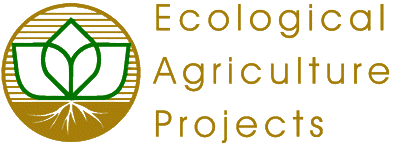

EAP Publications | Virtual Library | Magazine Rack | Search
Join the Ecological Solutions RoundtableIn spite of what some in the industry might believe, the federal government continues to ponder how the agrifood sector might be moved towards environmental sustainability.
Late in 1996, the agriculture department (AAFC) released its latest thoughts on the subject - a new document: STRATEGY FOR ENVIRONMENTALLY SUSTAINABLE AGRICULTURE AND AGRIFOOD DEVELOPMENT IN CANADA. Two accompanying reports provide a profile of agriculture and a survey of environmental issues facing the sector.
Together, these could be the most significant environmental policy documents since the last peak of public interest in environmental issues. That was in 1989, when then Agriculture Minister Mazankowski released the "Growing Together" vision for the industry. Recall that at that time, Ottawa did recognize "Environmental Sustainability" as a pillar of future policy making, even though, as many commentators noted, it was relegated to last place in a four pillar list.
The immediate motive for the new strategy is their need to respond positively to Canada's new Commissioner of the Environment and Sustainable Development. One of the roles of the Commissioner will be to monitor federal progress on promoting sustainability. Departments have been asked to develop strategies by year end, and the Commissioner will use each strategy as a yardstick to judge performance.
AAFC has been careful to consult with industry in the development of their strategy. A draft was released last summer, with a request for comments, followed by public consultations at various locations in Canada during the fall. The Ottawa hearing attracted about 20 participants, representing many industry groups in agriculture, but it did not attract people from outside the food and agriculture industry. The Montreal meeting was cancelled due to lack of interest.
The new strategy shows that, since the late 1980's, there has been some progress in the department's analysis of the sector, its environmental problems, and what to do about them. Although much of the strategy reflects ideas that were in place at the time of Growing Together, it's encouraging to see that the concepts of an "ecosystem approach" and "pollution prevention" have been integrated as principles upon which to design strategy.
These, together with other principles, have produced a strategic approach emphasizing actions to support agriculture in its search for sustainability. The approach is founded on the belief that the industry truly wants to be sustainable, and the Department's role is to offer positive incentives to help the industry get there. Therefore, the strategy steers clear of new regulatory mechanisms. Of course, this is not a surprise given this government's desire to replace "coercive" regulations with economic instruments, industry selfregulation, and moral suasion.
Beyond this, there are two things that are more troubling.
In the introduction, the AAFC recognizes that "as agriculture and agrifood industries have increased production intensity ..., greater stress has been placed on the environment". But throughout the document, there remains the call to increase the intensity of agricultural production and improve our competitiveness, to respond to the perceived impending world food crisis. AAFC is not alone in making this suggestion. It is in the company of many of the world's largest agricultural commercial interests, and leaders at the FAO and the World Bank. It would be more encouraging to see AAFC distance itself from this contradictory point of view.
The second problem is the almost total absence of reference to the Canadian consumer. This continues a long tradition of focusing on the supply side of the sector when looking for solutions. AAFC needs to devote more attention to consumers and how they drive the agrifood system, and how to harness the consumer to help achieve its goal of sustainability.
For those interested in federal attitudes regarding organic agriculture, you won't find much in this document. The word organic hardly appears in the text, suggesting either a reluctance to talk about it because of how it threatens other parts of the agriculture sector, or a denial of its significance. AAFC remains wedded to the idea that organic is purely an alternative system of production. Most organic farmers, of course, believe organic is much more, having implications far beyond the farm gate, right through to consumers. This is not apparent in AAFC's writing. The department appears not to recognize organic as a viable and competitive approach to sustainable farming.
Incidently, as Michael Porter pointed out some years ago, one of the distinguishing characteristics of competitive economies is the existence of "demanding consumers". If AAFC were to make a larger investment on the demand side of the market, the competitiveness they seek for the industry might natually follow.
For readers with a Web browser, the strategy is available on AAFC's web site at: <http://www.agr.ca/policy/strategy>.
Copyright © 1997 Ecological Agriculture Projects
Info Request | Services | Become EAP Member | Site Map
Give us your comments about the EAP site
Ecological Agriculture Projects, McGill University (Macdonald
Campus)
Ste-Anne-de-Bellevue, QC, H9X 3V9 Canada
Telephone:
(514)-398-7771
Fax:
(514)-398-7621
Email: eapinfo@macdonald.mcgill.ca
To report problems or otherwise comment on the structure of this site, send mail to the Webmaster